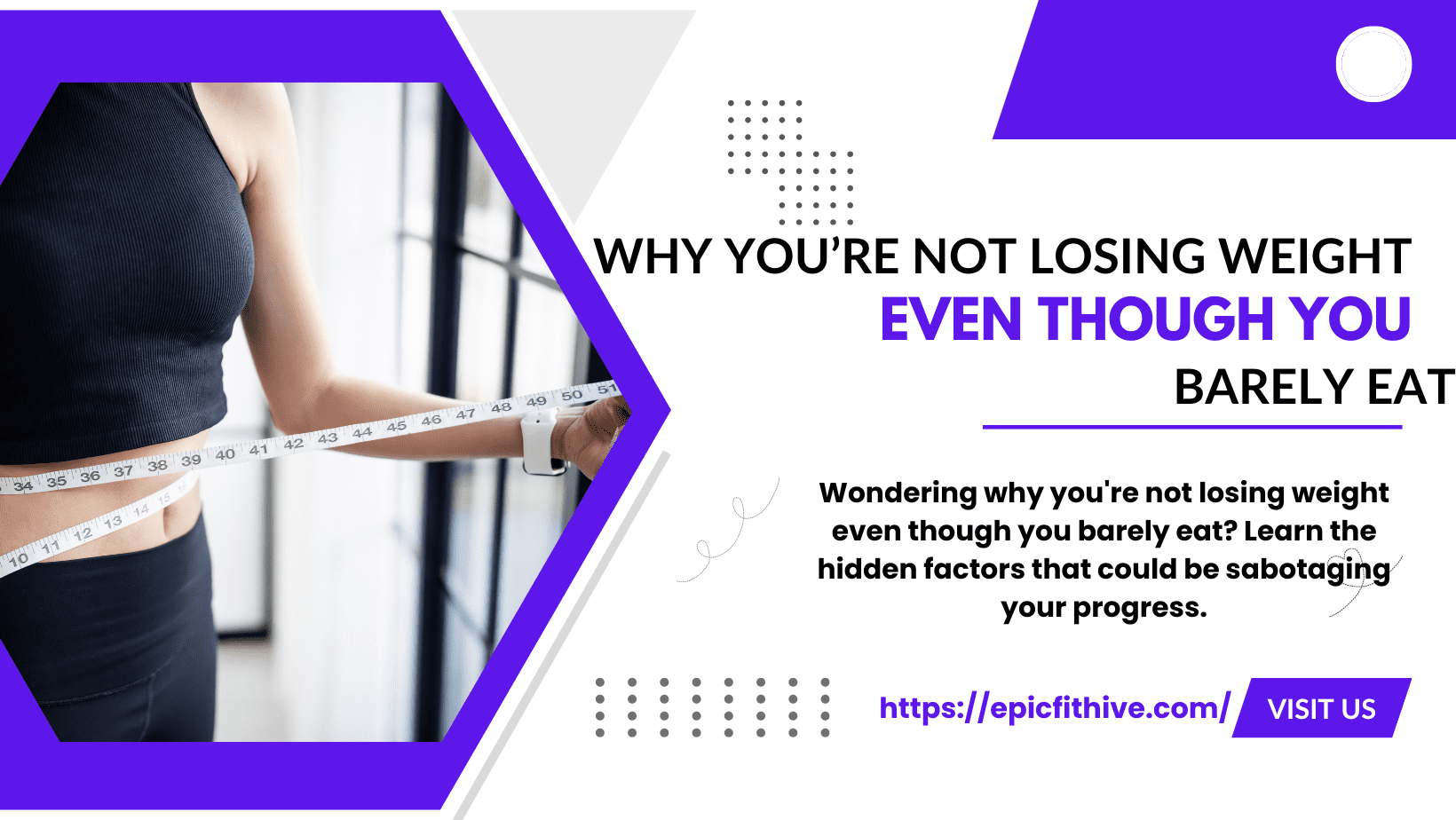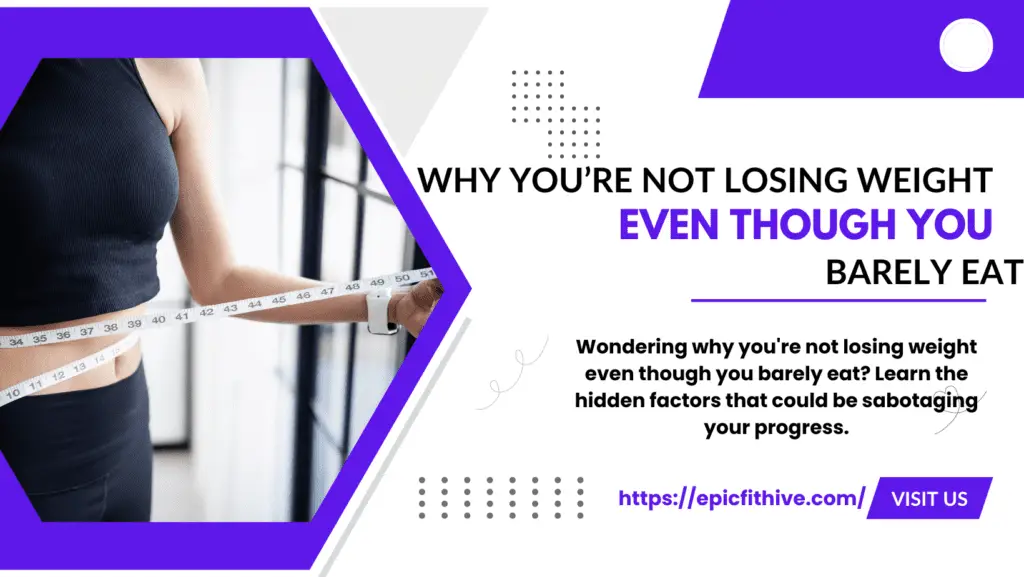Surprisingly, why you’re not losing weight even though you barely eat? is a confusing question people want answers for. If you’ve been cutting calories and still not seeing results, you’re not alone. Many people struggle to understand Why You’re Not Losing Weight Even on a Low-Calorie Diet—Science-Backed Reasons and Solutions. This blog will explore the science behind this frustrating experience and provide actionable advice to help you break through the plateau.
Why You’re Not Losing Weight Even on a Low-Calorie Diet—Science-Backed Reasons and Solutions?
There are several reasons why eating less doesn’t always translate to weight loss. Here’s what might be happening:
- Metabolic Adaptation: When you drastically reduce calories, your body may slow its metabolism to conserve energy, making it harder to lose weight
- Hormonal Imbalances: Hormones like cortisol (stress hormone) or insulin may disrupt fat loss, especially if you’re under stress or have underlying health conditions
- Hidden Calories: Sometimes, unnoticed calories from condiments, snacks, or beverages can add up, preventing weight loss
- Sleep Issues: Poor sleep quality can interfere with weight loss by impacting hunger-regulating hormones like ghrelin and leptin
Could Stress or Sleep Be the Reason I’m Not Losing Weight?
Yes! Stress and sleep play significant roles in weight management:
- Stress increases cortisol levels, which can lead to fat storage, especially around the abdomen
- Poor Sleep Quality disrupts hormone balance, leading to increased hunger and cravings for unhealthy foods
To counteract these effects:
- Practice stress management techniques like meditation or yoga.
- Aim for 7–8 hours of quality sleep each night.
Am I Eating Too Few Calories? Can That Stall Weight Loss?
Surprisingly, why you’re not losing weight even though you barely eat? Eating too few calories can hinder weight loss. Here’s why:
- Your body enters “starvation mode,” slowing metabolism to conserve energy
- Extreme calorie restriction may lead to muscle loss rather than fat loss
To avoid this, focus on a moderate calorie deficit paired with nutrient-dense foods like lean proteins, whole grains, and healthy fats
What Can I Do to Break Through a Weight Loss Plateau?
If you feel stuck, try these science-backed solutions:
- Increase Protein Intake: Protein helps preserve muscle mass and boosts metabolism
- Incorporate Strength Training: Building muscle increases your resting metabolic rate, helping you burn more calories even at rest
- Track Your Food Intake Accurately: Use apps or journals to monitor portion sizes and hidden calories
- Prioritize Whole Foods: Replace processed foods with nutrient-dense options like vegetables, fruits, nuts, and seeds
- Reevaluate Your Calorie Needs: As you lose weight, your calorie requirements change—adjust accordingly
Advice for Sustainable Weight Loss & Why You’re not Losing Weight Even Though you Barely Eat?
To achieve long-term success:
- Focus on overall health rather than just the number on the scale.
- Stay consistent with balanced eating habits and regular physical activity.
- Consult a healthcare professional if underlying conditions like thyroid issues or insulin resistance might be affecting your progress.
Understanding Why You’re Not Losing Weight Even on a Low-Calorie Diet—Science-Backed Reasons and Solutions is key to overcoming obstacles in your journey. With patience and the right strategies, lasting results are within reach! You don’t eat anything yet you can’t lose weight. Now you know while!



